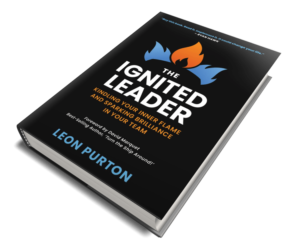When you realise it is a cycle, you can really grow

Work can be hard, particularly starting in a new job. I’ve recently moved jobs and employers, and there are some hard parts.
I had been employed by the same employer for over 20 years. Within that time I fulfilled 10 different roles with various job descriptions; everything from a paid student to Chief Engineer, an aircraft technician to a fear of public speaking coach.
There has been one constant. I have always been on the cycle of incompetence and confidence.
Realising this loop exists, and that we all feel it, made it easier to deal with how I was coping in my new job. I began to understand how my mind works and how I can use it to continue to grow. How feeling incompetent is the important starting point for increasing your self-efficacy.
This powerful realisation was important to me and will change how you think about trying something new.

Self-Efficacy
Head to the self-help or personal development aisle of the book shop, or stroll past in the airport, and you will see an overwhelming number of books on self-esteem and confidence.
But there are not enough of them on self-efficacy. This term was popularised in the late 70s by psychologist Albert Bandura is now a widely researched field, but it is not a mainstream concept. Badura defined it as ‘the belief in one’s capabilities to organize and execute the courses of action required to manage prospective situations’. But I have chosen to define it in this way;
Self-efficacy is the connection of belief in yourself and your determination to succeed.
People with high self-efficacy see challenges, not difficulties.
It turns out that if people focus on developing a personal feeling of effectiveness, you can grow both your self-esteem and your self-confidence — competence leads to true confidence, confidence supported by feeling effective in that area. I’ll tell you a story;
I was conducting research into how Militaries assure that their aircraft are safe to fly, there are regulatory organisations that prescribe the rules and then check that they are followed, and I was researching how they do it. As you can imagine, this is complex.
My real contribution was a new model for assessing these rules and then visualising their differences. I had to work out how to code in a new system to generate the visualisation I wanted, the examples I had were for mapping genome connections in biology, and I was trying to repurpose the system. It was hard to understand and I felt really incompetent.
But then I realised something, if I could get just one part of it working correctly, I could learn how to work the rest. So I doubled down on getting the colours to change when I wanted them too. A simple thing in the big picture, but doing that increased my confidence that I could make the rest work.
I increased my effectiveness coding in that script, I increased my trust in myself that I can do it. I was able to increase my self-efficacy. From this, my confidence that I could actually get it to work increased. From incompetence to limited competence, which led to limited efficacy, and finally, to some confidence. I eventually got those visualisations working and the project was a success (I called the visualisations Iris Charts).
From my place of incompetence, I slowly became more confident. All it took was the hard work at becoming more effective in one small area. By gradually increased my self-efficacy, what I knew I could do, I was able to complete a body of work I thought beyond me. High self-efficacy is a key component of successful people.

Incompetence
When I talk about incompetence, I am not talking about truly being incompetent. Some people truly are incapable of doing a certain thing successfully. These people have no native ability to be able to gain proficiency at any level at that activity or task.
When I talk about incompetence, I am talking about people with the feeling of incompetence. This arises at the start of something new, and it comes for all of us.
Some people have native confidence that is not based on any competence. I once read that
If you think you can do something, that’s confidence. If you can do it, that’s competence. Both are needed for success.
People with high self-efficacy have the belief that they can do what is required to work through a challenge.
What I need you to understand, is that at the start of something new. A new task, a new skill, a new job. You will feel incompetent and this is okay. In fact, it is truly exciting. It is the start of something important.
If you have the right attitude.

Attitude and Incompetence
Your attitude is the most important thing you own. As John Maxwell states in his book ‘The Difference Maker’;
Your attitude colours every aspect of your life, it is your mind’s paintbrush.
A negative attitude leads to negative thoughts, which leads to negative actions and negative results. A positive attitude leads to positive thought, which leads to positive actions and positive results. You get to choose the colours you can paint your life with.
This becomes important when you are faced with the feeling of incompetence. It is a difficult starting point for positive thoughts. What needs to happen is a very subtle reframe.
My attitude is;
I am not good at this….. Yet. But, I am excited by the challenge.
If you are able to reframe this when those feelings of incompetence arise, you are most of the way to success. All you need to do from here is the simple part of learning how to do everything. How exciting!
Your attitude is the doorway to self-efficacy. Crack it open and you can get through. Pull it closed and you make no progress.
You are in charge of that door. When everything else is taken away, all you have left is your attitude and thoughts.
To make your way out of Incompetence and into Confidence. You need to embrace the new challenge with a positive attitude. You need to embrace the feeling of incompetence and work out how to win at just one thing. The psychologists call this enactive attainment. You take action and achieve in one area, you are on your way success.
So, when you start to sense the feeling of incompetence, know that you are perfectly placed to learn a new skill and that new skill will provide a foundation for increasing your self-efficacy. You will grow in confidence, not only in achieving this one thing but all others in your future. All because of this one moment of feeling incompetent.
So, every time that self-doubt and feeling of incompetence arises, know that you are close to a breakthrough. You are at the edge of something important.
All you need to say is
I am not good at this…… Yet.
I am a writer with a passion for leadership, growth and personal development. I try and create a spark, a little idea that nests inside and kindles your aspirations. Reach me at leonpurton.com
The Three Essential Skills to Drive Your Success
And you need all threemedium.com
